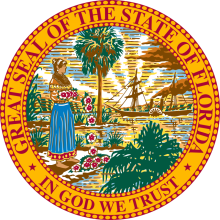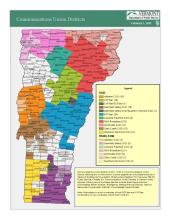Charter Spectrum Pushes Florida Law That Would Preempt Local Authority and Increase Burden on Municipal Electric Ratepayers
A pair of bills making the rounds through Florida’s state legislature are an attack on the state’s urban municipal electric utility ratepayers to the financial benefit of big cable monopolies, under the guise of expanding rural broadband.
H.B. 1239 and S.B. 1592 read like regulatory wishlists for Florida’s big Internet service providers. Word around the capitol is that the bills are heavily influenced by Charter Spectrum, the major incumbent cable Internet provider in the region (insiders also noted in an interview that it was sponsored by the Florida Internet and Television Association, of which Charter and Comcast are members).
H.B. 1239/S.B. 1592 would require municipal electric utilities to provide private companies with access to their poles at a capped rate, though the cost of attaching new telecommunications infrastructure differs based on size, shape, and weight. Florida’s municipal electric utilities, and their ratepayers, would be burdened with any additional costs that surpass the capped rate.
The bills would further require electric utilities to reengineer utility poles to accommodate broadband providers’ attachment requests within 90 days of receiving them. In some instances, municipal electric utilities would be forced to cover the full costs of pole replacements, rather than the new attacher.
At ILSR, we are concerned that make-ready policies do discourage competition and we have encouraged streamlined access and consistent, fair rates to ensure Internet service providers can pursue efficient deployment. However, this bill would force electric ratepayers, including residents and local businesses, to shoulder more of the burden for private firms like Charter Spectrum and AT&T with the latter avoiding paying their fair share of attachment costs.



